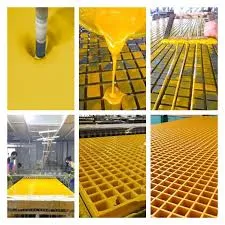
-
 Afrikaans
Afrikaans -
 Albanian
Albanian -
 Amharic
Amharic -
 Arabic
Arabic -
 Armenian
Armenian -
 Azerbaijani
Azerbaijani -
 Basque
Basque -
 Belarusian
Belarusian -
 Bengali
Bengali -
 Bosnian
Bosnian -
 Bulgarian
Bulgarian -
 Catalan
Catalan -
 Cebuano
Cebuano -
 China
China -
 China (Taiwan)
China (Taiwan) -
 Corsican
Corsican -
 Croatian
Croatian -
 Czech
Czech -
 Danish
Danish -
 Dutch
Dutch -
 English
English -
 Esperanto
Esperanto -
 Estonian
Estonian -
 Finnish
Finnish -
 French
French -
 Frisian
Frisian -
 Galician
Galician -
 Georgian
Georgian -
 German
German -
 Greek
Greek -
 Gujarati
Gujarati -
 Haitian Creole
Haitian Creole -
 hausa
hausa -
 hawaiian
hawaiian -
 Hebrew
Hebrew -
 Hindi
Hindi -
 Miao
Miao -
 Hungarian
Hungarian -
 Icelandic
Icelandic -
 igbo
igbo -
 Indonesian
Indonesian -
 irish
irish -
 Italian
Italian -
 Japanese
Japanese -
 Javanese
Javanese -
 Kannada
Kannada -
 kazakh
kazakh -
 Khmer
Khmer -
 Rwandese
Rwandese -
 Korean
Korean -
 Kurdish
Kurdish -
 Kyrgyz
Kyrgyz -
 Lao
Lao -
 Latin
Latin -
 Latvian
Latvian -
 Lithuanian
Lithuanian -
 Luxembourgish
Luxembourgish -
 Macedonian
Macedonian -
 Malgashi
Malgashi -
 Malay
Malay -
 Malayalam
Malayalam -
 Maltese
Maltese -
 Maori
Maori -
 Marathi
Marathi -
 Mongolian
Mongolian -
 Myanmar
Myanmar -
 Nepali
Nepali -
 Norwegian
Norwegian -
 Norwegian
Norwegian -
 Occitan
Occitan -
 Pashto
Pashto -
 Persian
Persian -
 Polish
Polish -
 Portuguese
Portuguese -
 Punjabi
Punjabi -
 Romanian
Romanian -
 Russian
Russian -
 Samoan
Samoan -
 Scottish Gaelic
Scottish Gaelic -
 Serbian
Serbian -
 Sesotho
Sesotho -
 Shona
Shona -
 Sindhi
Sindhi -
 Sinhala
Sinhala -
 Slovak
Slovak -
 Slovenian
Slovenian -
 Somali
Somali -
 Spanish
Spanish -
 Sundanese
Sundanese -
 Swahili
Swahili -
 Swedish
Swedish -
 Tagalog
Tagalog -
 Tajik
Tajik -
 Tamil
Tamil -
 Tatar
Tatar -
 Telugu
Telugu -
 Thai
Thai -
 Turkish
Turkish -
 Turkmen
Turkmen -
 Ukrainian
Ukrainian -
 Urdu
Urdu -
 Uighur
Uighur -
 Uzbek
Uzbek -
 Vietnamese
Vietnamese -
 Welsh
Welsh -
 Bantu
Bantu -
 Yiddish
Yiddish -
 Yoruba
Yoruba -
 Zulu
Zulu
Exploring Leading Manufacturers of Shank Adapters for Enhanced Tool Performance and Compatibility
The Importance and Innovation of Shank Adapter Manufacturers
In the world of machinery and construction, the reliability and efficiency of tools are paramount for achieving optimal performance and safety. One of the critical components in various industrial applications is the shank adapter. These adapters serve as connectors that allow different tools and equipment to work seamlessly together, thereby enhancing productivity and reducing the risk of operational failure. This is where shank adapter manufacturers play a crucial role in the supply chain, innovating and producing high-quality products to meet the evolving needs of various industries.
Shank adapters are typically used in rotary tools, drilling machines, and construction equipment, facilitating easy changes between different drill bits and attachments. Their design must ensure durability, precision, and compatibility with a wide range of tools. This necessity for versatility and dependability has driven shank adapter manufacturers to invest in advanced technologies and materials. The emergence of modern manufacturing processes, such as CNC machining and additive manufacturing, has allowed these companies to design and produce shank adapters with enhanced strength and longevity. This is especially important in heavy-duty applications where the shank adapter is subjected to significant stresses.
Moreover, the growing emphasis on efficiency and productivity in industries like construction, mining, and agriculture bolsters the demand for high-quality shank adapters. As companies strive to reduce downtime and optimize operational workflows, they seek tools that allow for quick and easy transitions. Shank adapters that are designed with user-friendliness in mind, such as those featuring quick connect mechanisms, not only facilitate faster tool changes but also contribute to overall job efficiency.
shank adapter manufacturer

Another trend shaping the landscape of shank adapter manufacturers is the move towards sustainability. With increasing awareness about environmental impact, many manufacturers are exploring eco-friendly materials and production processes. This shift not only meets the demands of environmentally conscious consumers but also aligns with global sustainability goals. Manufacturers that prioritize sustainability are positioning themselves advantageously in a competitive market, appealing to businesses looking to improve their green credentials.
Quality assurance is also a critical factor for shank adapter manufacturers. To ensure that their products meet industry standards and customer expectations, many manufacturers implement rigorous testing protocols. This includes stress testing, compatibility verification, and performance evaluations under varying conditions. By adhering to strict quality control measures, manufacturers can provide their clients with reliable and safe components that will perform under challenging situations.
Furthermore, the rise of e-commerce has transformed how shank adapter manufacturers engage with their customers. With the ability to market products online and provide detailed specifications, manufacturers can reach a broader audience than ever before. This accessibility enables end-users to make well-informed decisions when selecting tools and accessories, enhancing overall customer satisfaction.
In conclusion, shank adapter manufacturers are vital contributors to the machinery and construction industries, providing essential components that support efficient operations and tool versatility. As innovation continues to drive this sector, manufacturers are likely to explore new materials, advanced production techniques, and sustainable practices. The importance of quality assurance ensures that businesses can rely on these products to perform effectively. As demand grows, the adaptability and responses of shank adapter manufacturers will be pivotal in shaping the future of industrial applications. By embracing technological advancements and sustainability, these manufacturers not only enhance their competitiveness but also contribute positively to the broader industry landscape.
Latest news
-
High-Quality Fiberglass Car Bodies Durable GRP Car & Boat Body SolutionsNewsJul.08,2025
-
High-Quality Fiberglass Dual Lamination Product Manufacturer Durable FRP & GRP Dual Lamination SolutionsNewsJul.08,2025
-
Rectangular Tank with Dimensions for GRP Calculation Custom Fiberglass GRP Rectangular TanksNewsJul.07,2025
-
High-Quality Fiberglass Weir Custom FRP Weir & Fiberglass Tanks ManufacturerNewsJul.07,2025
-
CPVC FRP Pipe A Reliable Choice for Industrial Applications High Strength & Corrosion ResistanceNewsJul.07,2025
-
Fiberglass Scrubber for Effective Cleaning and Stain Removal – Superior Performance in Various ApplicationsNewsJul.06,2025









